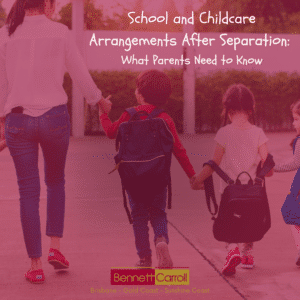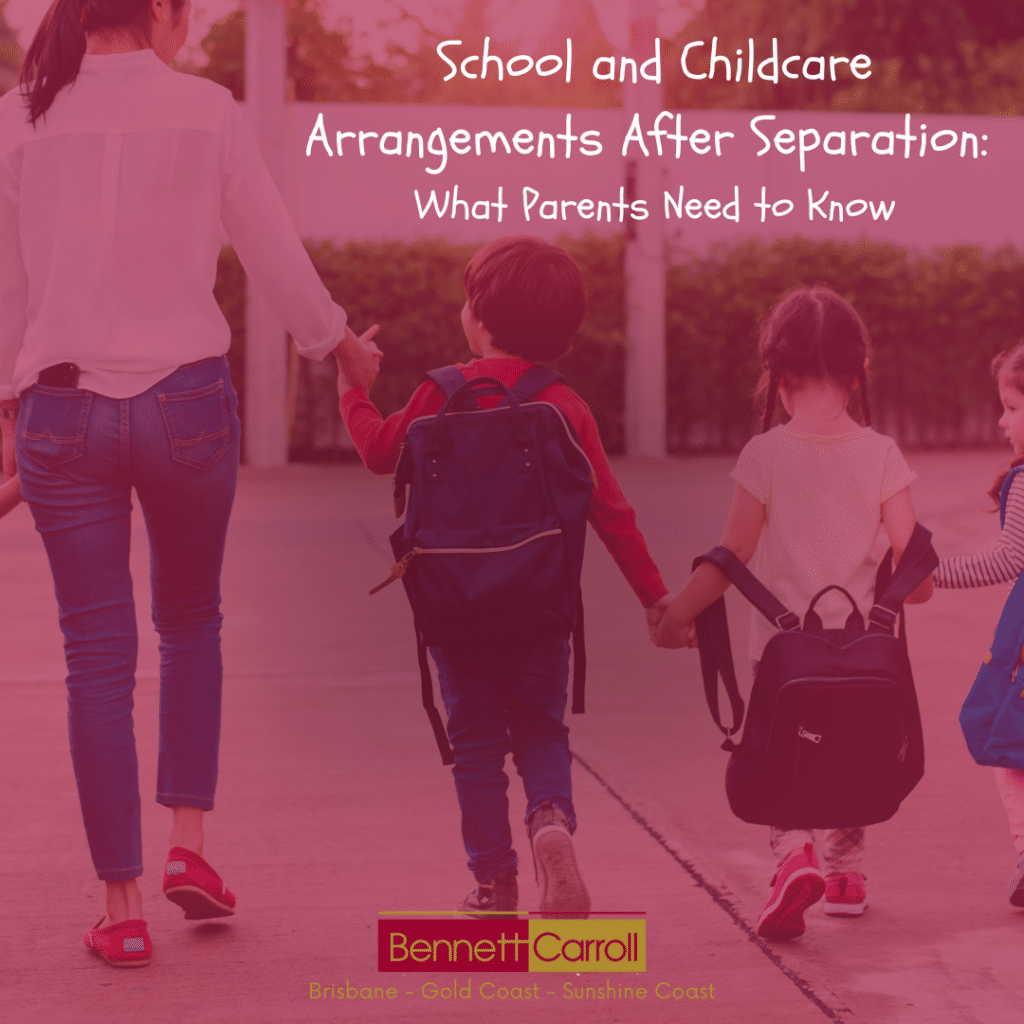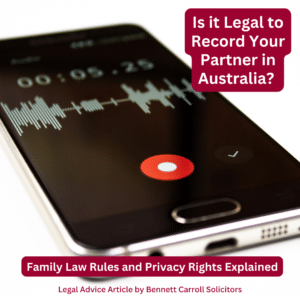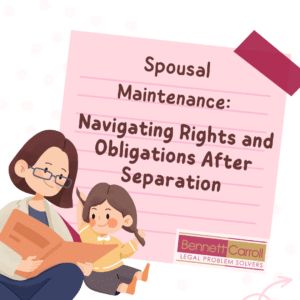Separation or divorce often brings significant changes to your family dynamics, including how decisions about school and childcare arrangements are made. Navigating school and childcare arrangements after separation can be challenging, but understanding your legal rights and responsibilities ensures the best outcomes for your child. Below, we address common questions and concerns parents face in these situations.
Who Decides Which School or Childcare the Child Attends?
In Australia, decisions about your child’s education fall under the umbrella of parental responsibility, which typically remains shared between both parents after separation or divorce. This means you and your ex-partner need to agree on major decisions, such as which school or childcare your child will attend.
When choosing a school, factors such as proximity to each parent’s home, who the child lives with most of the time, and what is in the best interests of the child are all important. The Court may also consider the child’s established social connections and the quality of education at the proposed schools. If agreement cannot be reached, the matter may need to be resolved through family dispute resolution (FDR) or, as a last resort, through the Family Court.
What Happens if One Parent Wants to Change Schools?
A change of schools often arises when one parent relocates or believes a different school would better suit the child’s needs. In these cases:
- Both parents must agree on the change if parental responsibility is shared.
- If one parent makes a unilateral decision, the other parent can seek legal intervention.
- When determining school changes, the Court will consider factors such as:
- The quality of education at each school.
- The child’s established social connections.
- The impact of the change on the child’s daily routine.
Who Handles Drop-Offs and Pick-Ups?
The logistics of transporting children to and from school or childcare are often outlined in parenting plans or parenting orders. These agreements can specify:
- Which parent is responsible for drop-offs and pick-ups on particular days.
- How transportation will be managed for school events or extracurricular activities.
If no formal arrangements exist, you and your co-parent should communicate openly to establish a workable schedule that prioritises your child’s needs.
How Are School Events Handled?
School events such as parent-teacher interviews, concerts, or sports days can become tricky if they fall on a week when the child is with the other parent. To navigate this:
- Both parents have a right to attend school events unless a Court order states otherwise.
- It’s essential to notify the school of the separation and provide both parents’ contact details to ensure equal access to event information.
- If attending events together is not feasible, consider alternating attendance or requesting separate appointments, such as for parent-teacher interviews.
Who Pays for School Fees and Related Costs?
The responsibility for school fees, uniforms, back-to-school costs, and ongoing expenses like excursions or extracurricular activities is generally shared between both parents. However, the specifics depend on your parenting agreement or Court orders.
- Parenting agreements or consent orders may outline how these costs are divided.
- If no formal arrangement exists, it’s best to negotiate a fair split based on each parent’s financial capacity.
- The Court, if involved, will usually allocate costs in a way that ensures the child’s education and well-being are prioritised, considering each parent’s income and circumstances.
Discussing and documenting these expenses early can help avoid conflicts later in the school year.
Can a Child Attend After-School Care When the Other Parent is Available?
Conflicts sometimes arise when one parent wants the child to attend after-school care, but the other parent is available to care for them. Legally, this depends on the terms of your parenting agreement:
- If your agreement specifies after-school care as part of the routine, it should be followed.
- If not, you may need to negotiate or amend the agreement to reflect the current situation.
The Court’s primary focus in these cases will be whether the arrangement benefits the child.
Talking to Your Child About Joint Custody
Children can find the changes that come with separation overwhelming, especially when it involves joint custody. Here are some tips to help them understand:
- Be Honest but Reassuring: Use age-appropriate language to explain the situation and emphasise that both parents love them.
- Provide Predictability: Share the custody schedule with your child so they know what to expect.
- Stay Positive: Avoid speaking negatively about the other parent in front of the child.
- Encourage Questions: Let your child ask questions and address their concerns openly and calmly.
Tips for Working with Schools Post-Separation
- Inform the School: Notify your child’s school or childcare about the separation. Provide copies of any parenting orders or agreements that affect the child’s schedule or pick-up/drop-off arrangements.
- Keep Communication Open: Schools often communicate via email or apps—ensure both parents have access to these channels.
- Respect Boundaries: Avoid involving teachers or school staff in disputes. Focus on collaboration for your child’s benefit.
- Plan Ahead: Use shared calendars or apps to coordinate school events and activities.
FAQs
Can I access my child’s school records?
Yes, unless a Court order specifies otherwise, both parents have the right to access their child’s school records.
What if my ex-partner refuses to cooperate on school matters?
You may need to seek assistance through FDR or apply to the Family Court for orders to resolve the dispute.
Can I prevent my ex-partner from attending school events?
Not without a Court order. Both parents generally retain the right to participate in their child’s education.
How do I handle disputes about extracurricular activities?
Try to negotiate an agreement that reflects your child’s interests and schedule. If this isn’t possible, mediation may help.
Final Thoughts
Navigating school and childcare arrangements after separation can be complex, but you don’t have to do it alone. At Bennett Carroll Solicitors, we provide expert family law advice to help you resolve disputes and create workable solutions for your family. Whether you’re based in Brisbane, the Gold Coast, or the Sunshine Coast, our team is here to assist with all aspects of family law. Contact us today to schedule a consultation and find peace of mind in knowing your child’s best interests are protected.
Contact Us Today to discuss your family law needs. Together, we’ll work towards arrangements that prioritise your child’s best interests and give you peace of mind.
For more information, check out these resources:
- Parental Rights: Guidance on Parental Responsibilities, Visitation Rights, and Child Support – Legal Advice Article
- Parenting Arrangements During School Holidays: What Families Should Know- Legal Advice Article
- Family Dispute Resolution Services
- Child custody and parenting arrangements









